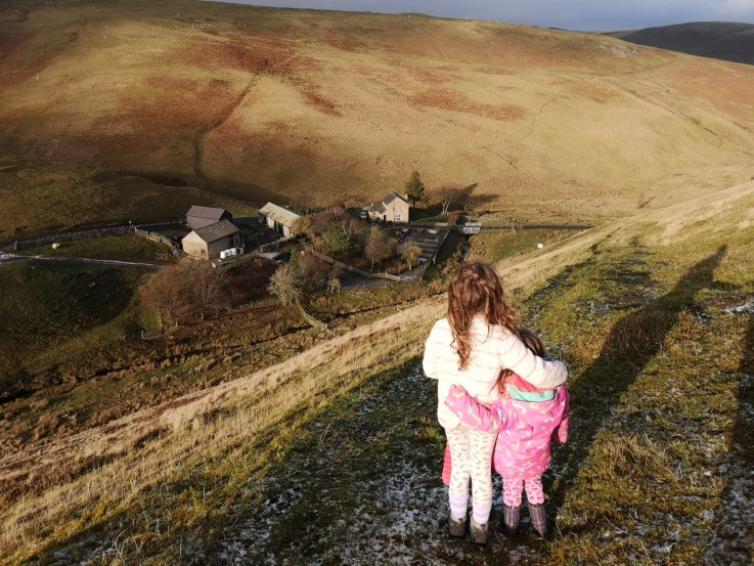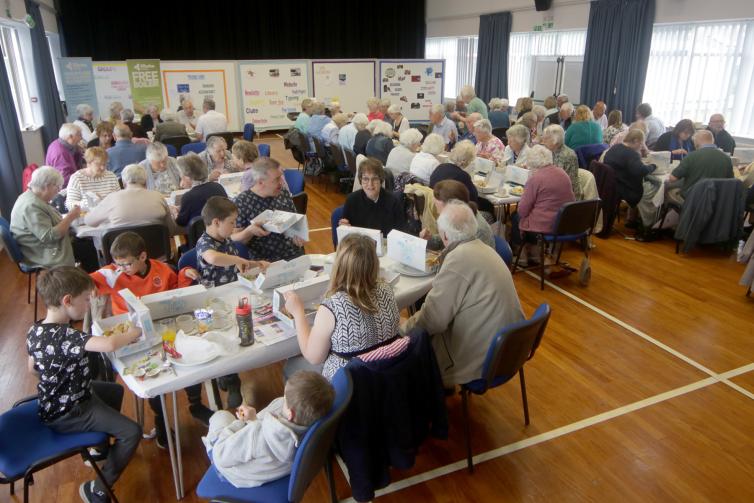Contact our team for more information about how we help Charities, Community Interest Companies, Co-operative Societies and Community Benefit Societies.
Community Action Northumberland (CAN) has a long-standing commitment to reducing fuel poverty and increasing household energy efficiency in the rural communities of Northumberland.
The organisation was initially awarded £147,995.00 in June 2021 from the Main Fund of Energy Redress for their project, Remote Northumberland Energy Advice.
Their award-winning Warm Hubs programme has been highlighted as good practice by both Ofgem and the Prince’s Countryside Fund (“Village Survival Guide,” 2019).
Warm Hubs provides a network of warm, energy-efficient community venues acting as focal points for energy support, and advice through a small network of volunteer ‘Community Energy Agents.’ The project is attended by around 25,000 each year.
They received a second grant worth £159.365 from Round Two of the Carbon Emissions Reduction Fund, which started on 1 March 2023 and will end February 2025 for their project, ‘Domestic carbon reduction in off-gas Northumberland’.
Remote Northumberland Energy Advice
Programme aims
The over-arching aim of the programme is to support energy consumers in hard-to-reach rural Northumberland who are disadvantaged through remote locations with no connection to the gas grid and, in the case of 356 households, the electricity grid.
Residents in these locations frequently struggle to access existing services and need additional support from trusted community-based sources. The incidence of fuel poverty is huge with low incomes, poor dwelling construction and cost of heating oil. The project was designed to build on their existing, trusted network of community-centred Warm Hubs as the focus for support and advice for the long term.
Further information:
The following data was provided in their application.
There are 153,666 properties in Northumberland, of which 43,953 are off the gas grid.
These properties are heated as follows:
- 7180 by electricity
- 7360 by multiple fuels
- 11,564 by oil - 4643 by solid fuel
- 1331 by other sources
- 1858 have no heating
Project beneficiaries
- Households who are off the electricity grid who have been supported by an 'Off-grid Task Force' with representatives of Northumberland National Park, Northumberland County Council and the North East Local Enterprise Partnership. At the time, there were 356 off-grid properties across the county.
- Households who are off the gas grid, constituting 35% of the Northumberland population. Domestic non-gas households produce 104.2 kilotons of carbon, 15% of all domestic emissions in Northumberland.
- Households who are at risk or in fuel poverty, using the low-income high-cost definition. In 2014 this figure stood at 13.3% for Northumberland.
- Households who are geographically isolated, including villages, hamlets and isolated dwellings. 20% of residents in Northumberland are defined as living in very rural locations.
- Households using Oil/LPG/Coal/Logs to support a transition to renewable alternatives, significantly lowering carbon emissions.

Programme scope
The funding was awarded to enable CAN to:
- Recruit two part-time Energy Advisors to provide one-to-one in-home household advice and support across the remote rural communities of Northumberland where existing advice programmes do not reach.
- Deliver one-to-one and group advice at the network of over 20 Warm Hubs.
- Recruit additional volunteers to join their Community Energy Agent network and train all their volunteers to be able to provide initial energy advice and support in their communities, using Warm Hubs as their local focal points.
- Provide telephone and email advice through Energy Advisors, supported by existing staff.
- Run roadshows covering all energy and renewables advice, promoting existing support available and facilitating long-term relationships with Warm Hubs.
- Directly approach residents off the electricity grid to provide support and advice.
- Directly target members of our existing oil/LPG/coal joint procurement initiative - ‘OilCAN’ - to provide support and advice.
- Establish a Warm Hub Portal providing a sustainable web-based platform for energy advice and secure ongoing interaction with supported residents.
To date, CAN are greatly exceeding all targets having supported just over 3,000 households with a mixture of light-touch advice at events, home visits, face-to-face appointments at community venues and telephone support.
They have also provided over 4,000 small energy-saving measures to over 700 households.

Additionality, legacy and innovation
The project was designed to directly add to existing activity carried out by Northumberland Citizens Advice Bureau and already funded by Energy Redress, specifically targeting remote rural households who struggle to engage with existing programmes.
There will be a beneficial legacy through the Warm Hub network with support for Warm Hubs, volunteer Community Energy Agents and the Warm Hub portal continuing beyond project funding.
Warm Hubs are an innovation of CAN. They were instigated in 2015 and have gone from strength to strength. The project works with local venues and local volunteers to provide hubs of support on energy and carbon matters in the very remote parts of Northumberland.
The addition of a Warm Hub portal provides a focus for ongoing support to be maintained across Northumberland’s remote rural communities.
Programme actions
- The project has delivered trusted independent carbon reduction advice and support to rural households off the gas grid who face the most challenging response to the removal of fossil fuels.
- A dedicated officer has provided independent advice to off-gas grid households to maximise their energy efficiency and identify the optimal options for transition to non-fossil fuels.
- Support has been given to individual households to implement carbon reduction installations, utilising external grant support available.
- A series of energy roadshows in rural communities across the area was also delivered.
Graham Ayling, senior project manager for the Energy Redress Scheme, said,
“This is a great example of the work that local charities can do with Redress funds. Using local knowledge and understanding of their area CAN aims to address the issues that affect their rural community and provide the support that local people need through this cost of living crisis.”
Residents in these locations frequently struggle to access existing services and need additional support from trusted community-based sources. The incidence of fuel poverty is huge given the preponderance of low incomes, poor dwelling construction and cost of heating oil. This programme builds on our existing, trusted network of community-centred Warm Hubs as the focus for support and advice for the long term.
